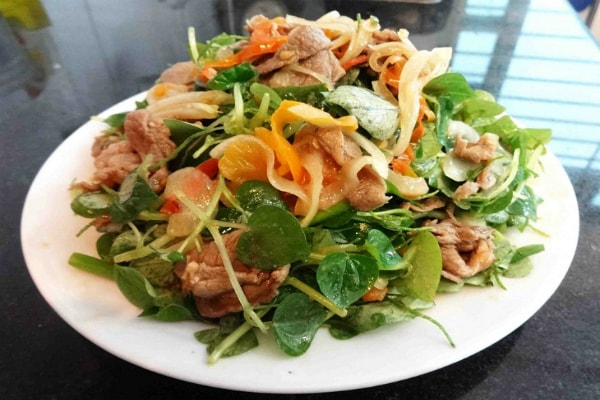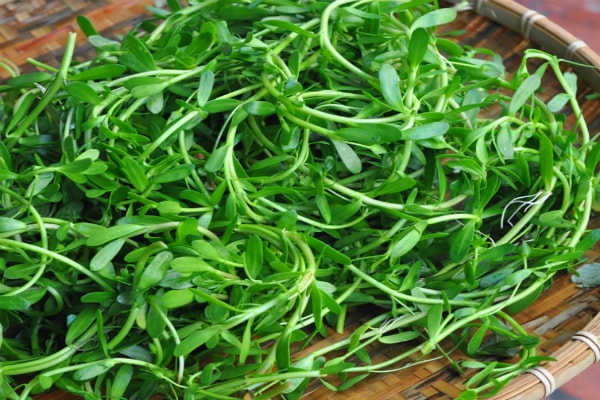5 familiar hometown vegetables are valuable medicine
Water spinach, amaranth, water spinach, bitter vegetables, and purslane growing on the edges of fields and river banks are remedies that can cure many diseases.
According to pharmacist Le Kim Phung, former lecturer at the University of Medicine and Pharmacy in Ho Chi Minh City, familiar vegetables in the daily meals of Vietnamese people can help cure diseases and improve health.
Watercress
This vegetable grows abundantly in wet rice fields. The active ingredient extracted from watercress has anti-inflammatory, pain-relieving, antibacterial, and broad antifungal properties. Watercress is also used as a medicine to treat stomachache, abscesses, acne, burns, gout, rheumatism, etc.
Some countries in the world also use the whole plant to treat coughs, high fever, heal wounds, lower cholesterol... Every day you should use 100 to 200 grams of fresh vegetables or take the concentrated extract and divide it into several doses to drink during the day.
|
Watercress cures stomachache, rheumatism... can be used to make many familiar dishes. Photo:GDV |
Spinach
Amaranth has a sweet taste, cool properties, diuretic, antiseptic and detoxifying effects. The leaves contain vitamins A, B, C, PP, and many proteins, especially lysine, with higher content than corn, wheat and soybeans.
Every day, eat 200 to 500 grams of boiled amaranth and drink the water to help with urination, bowel movements, constipation, dysentery, allergies, rashes, and insect bites. Using amaranth flowers and seeds can help treat heat stroke and blurred vision.
Water coconut vegetable
This vegetable has a spongy stem that helps the plant float on the water surface, growing wild in many fields, ponds, and ditches. Water coconut vegetable has quite high nutritional value, containing a lot of protein, glucid, fiber, calcium, phosphorus, iron, carotene, vitamin C, flavonoids and tannins.
The vegetable has a sweet and mild taste, cool properties, and has the effect of clearing heat, detoxifying, and diuresis. It is also used to treat colds, stomachaches, and externally, crushed and applied to treat snake bites, boils, and swelling. People can eat the vegetable with fish sauce or boil it to make soup.
Bitter ground vegetables
This plant is also called round-leaf bitter vegetable, grows wild on dry land next to river banks, coastal areas, most abundant in the Mekong Delta.
Bitter ground vegetables have a bitter taste, cool properties, help to nourish the liver, promote urination, and treat epilepsy. In addition, the vegetable is used to treat diseases such as hepatitis, jaundice, hives, and fever. You should pick the plant before flowering, wash it, eat it raw or use it as a vegetable to eat with snakehead fish porridge. Use 50-100g every day to cook soup or boil to get water to drink.
|
Wild bitter melon grows along riverbanks and beaches. It has a bitter taste and cooling properties that help clear urine and nourish the liver... Photo:GC |
Purslane
Purslane has a slightly sour and bitter taste, cool properties, contains many glycosides, saponins, mucus, organic acids, potassium salts and many vitamins such as A, B1, B2, C, PP. The vegetable has the effect of clearing heat, detoxifying, purifying blood, laxative, deworming, sedative. This vegetable is used to treat acute enteritis, intestinal parasites such as roundworms, pinworms (add milkweed), bloody stools (add eclipta, pennywort), whooping cough, chronic cough...
Every day, you should eat 15 to 30 grams of dried leaves or 50 to 100 grams of fresh leaves, boiled to get the water to drink. You can eat them raw, stir-fried, or as vegetables to eat with fish sauce. In addition, you can crush them to treat acne and boils.



